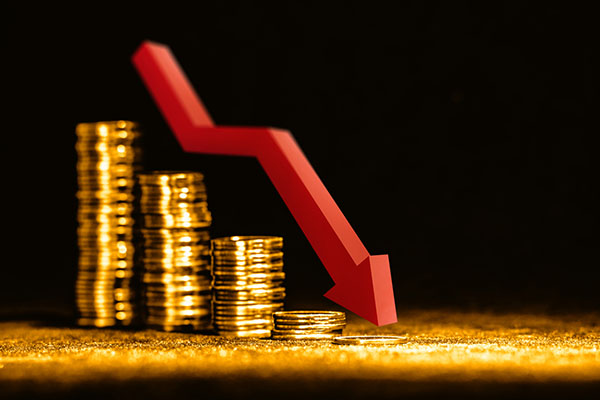UK dividends drop as companies look to preserve cash
Payouts fell in the third quarter of the year, with mining and oil companies big contributors to the drop, reports Sam Benstead.
24th October 2024 10:43
by Sam Benstead from interactive investor

Total UK dividends dropped in the third quarter of the year (July to September) to £25.6 billion, down 8.1% year-on-year.
Regular dividends, which exclude one-off special dividends, were £25.3 billion, down 3.5% on a constant-currency basis.
This is according to the latest Dividend Monitor published by financial services company Computershare.
- Invest with ii: Top UK Shares | Share Prices Today | Open a Trading Account
It found that UK Plc is predicted to yield 3.7% during the next 12 months, down from previous forecast of 4%. This is a result of lower payouts as companies seek to preserve cash, and higher share prices, which compress dividend yields.
Equities and gilts now yield a similar amount, at around 4%, but cash-like products, such as money market funds, yield about 5% currently as returns are closely linked to the Bank of England interest rate. Money market returns will fall, however, as interest rates decline.
Computershare notes that while yields on equities and bonds are similar, history shows that dividends grow over time, reflecting the long-term growth in company profits and the advantages of owning shares over bonds.
- Wild’s Winter Portfolios 2024-25: another season of big profits?
- Sign up to our free newsletter for investment ideas, latest news and award-winning analysis
Moreover, the data firm notes that the total shareholder yield, which includes the value of share buybacks, is closer to 6% because buybacks have become an increasingly important component of the cash returned to shareholders in recent years.
The main detractor for dividends in the third quarter was the mining sector, which cut payouts by £2.6 billion, or by half roughly compared with the same period last year.
Mining company payouts in 2024 will fall by almost three-fifths since their peak in 2022, but they will still be the third-largest paying sector this year, according to the data firm.
With banking dividends broadly flat, and the oil sector also seeing payouts decline, a decline in payouts overall was inevitable.
Among other sectors, utilities made the largest negative impact, while the most positive contributions came from the pharmaceutical and industrials sectors.
- Sector Screener: the FTSE 100 mining stocks with long-term appeal
- Bank stocks: one to buy, one to hold and one to sell
Mid-cap companies were a bright spot, posting better underlying growth (+3.6%) than the top 100 firms, reflecting mid caps’ greater sensitivity to a resilient UK economy, as well as lower exposure to exchange rate movements.
The largest dividend payers in Q3 2024 were Rio Tinto Registered Shares (LSE:RIO), Shell (LSE:SHEL), National Grid (LSE:NG.), HSBC Holdings (LSE:HSBA) and British American Tobacco (LSE:BATS), paying out £7.5 billion between them.
Computershare now expects headline dividends of £92.3 billion for 2024, up 2% year-on-year, down from its previous forecast of a 3.8% annual increase.
Clive Beagles, manager of the J O Hambro UK Equity Income fund, says that the fall in dividends in Q3 was expected, but growth will accelerate next year.
He said: “There were a number of companies who shifted their ‘ex’ date from late September to early October, for example Phoenix Group Holdings (LSE:PHNX). This magnified the fall in Q3 vs last year. Conversely, it will boost the growth rate of Q4 2024 vs the Q4 2023 figure.
“In 2025, we expect a marked acceleration in dividend growth towards the fund’s long-term average, of around 9% a year. ”
These articles are provided for information purposes only. Occasionally, an opinion about whether to buy or sell a specific investment may be provided by third parties. The content is not intended to be a personal recommendation to buy or sell any financial instrument or product, or to adopt any investment strategy as it is not provided based on an assessment of your investing knowledge and experience, your financial situation or your investment objectives. The value of your investments, and the income derived from them, may go down as well as up. You may not get back all the money that you invest. The investments referred to in this article may not be suitable for all investors, and if in doubt, an investor should seek advice from a qualified investment adviser.
Full performance can be found on the company or index summary page on the interactive investor website. Simply click on the company's or index name highlighted in the article.